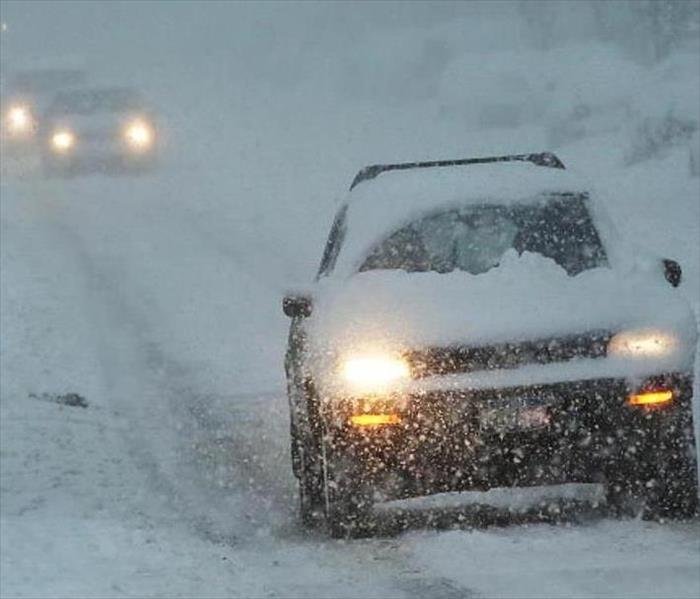Dangers of Winter Storms
1/3/2021 (Permalink)
Does your area get affected by winter storms?
Has a winter storm been devastating to you or your family?
Winter storms can be a disaster for your home or business. We are here to help you avoid water damage or fire damage. SERVPRO of Morgantown is here to educate the community of the best practices that you should use. A major winter storm can be lethal. You should prepare for the cold weather conditions and respond to them effectively so you can reduce the dangers caused by winter storms.
Before the storm hits:
- You should watch and be familiar with winter storm warning messages. (See Winter Storm Watches and Warnings.)
- Make sure you service any snow removal equipment, have rock salt on hand to melt ice on walkways, and you can use kitty litter to generate temporary traction.
- Make sure you have sufficient heating fuel and make sure regular fuel sources may be cut off.
- You should also winterize your home. Here are some tips to do so: Insulate walls and attic, Caulk and weather-strip doors and windows, and Install storm windows or cover windows with plastic from the inside.
- In case you do not have. have safe emergency heating equipment available. Examples :Fireplace with ample supply of wood, Small, well-vented, wood, coal, or camp stove with fuel, and Portable space heaters or kerosene heaters.
- You should always install and check smoke detectors.
- Another tip is that you can contact your Parish Emergency Management Office or American Red Cross chapter for more information on winter storms.
When storms hit, it is a good idea to do some things to help keep pipes from freezing:
- Wrap pipes in insulation or layers of old newspapers, Cover the newspapers with plastic to keep out moisture,
- Let faucets drip a little to avoid freezing, and Know how to shut off water valves.
- Lastly, you should have disaster supplies on hand, in case the power goes out.
Some things to keep around:
- Flashlight and extra batteries, Portable, battery-operated radio and extra batteries, First aid kit, One-week supply of food (include items that do not require refrigeration or cooking in case the power is shut off), Non Electric can opener, One-week supply of essential prescription medications, Extra blankets and sleeping bags, and Fire extinguisher (A-B-C type).
Any questions, you can also call us!
Tracie "Dusty" Nichols
304-291-3434





 24/7 Emergency Service
24/7 Emergency Service
